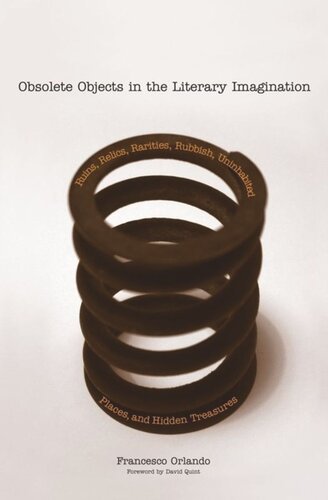

Most ebook files are in PDF format, so you can easily read them using various software such as Foxit Reader or directly on the Google Chrome browser.
Some ebook files are released by publishers in other formats such as .awz, .mobi, .epub, .fb2, etc. You may need to install specific software to read these formats on mobile/PC, such as Calibre.
Please read the tutorial at this link: https://ebookbell.com/faq
We offer FREE conversion to the popular formats you request; however, this may take some time. Therefore, right after payment, please email us, and we will try to provide the service as quickly as possible.
For some exceptional file formats or broken links (if any), please refrain from opening any disputes. Instead, email us first, and we will try to assist within a maximum of 6 hours.
EbookBell Team

4.3
38 reviewsTranslated here into English for the first time is a monumental work of literary history and criticism comparable in scope and achievement to Eric Auerbach’s Mimesis. Italian critic Francesco Orlando explores Western literature’s obsession with outmoded and nonfunctional objects (ruins, obsolete machinery, broken things, trash, etc.). Combining the insights of psychoanalysis and literary-political history, Orlando traces this obsession to a turning point in history, at the end of eighteenth-century industrialization, when the functional becomes the dominant value of Western culture.
Roaming through every genre and much of the history of Western literature, the author identifies distinct categories into which obsolete images can be classified and provides myriad examples. The function of literature, he concludes, is to remind us of what we have lost and what we are losing as we rush toward the future.